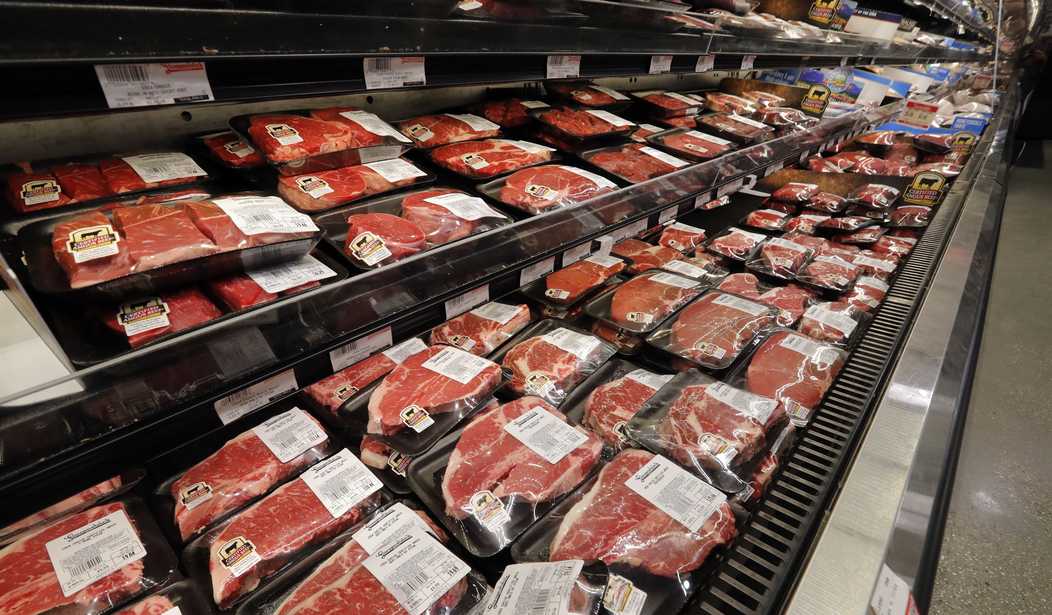Donald Trump has ordered meat processing plants to stay open, despite many of them becoming hot spots for the spread of the coronavirus. The president used his authority under the Defense Production Act, calling the plants “critical infrastructure” to ensure the nation’s food supply.
Twenty meatpacking and processing workers have died from the virus and 22 plants have closed at one time or another after clusters of workers became infected.
“Such closures threaten the continued functioning of the national meat and poultry supply chain, undermining critical infrastructure during the national emergency,” the order says. “Given the high volume of meat and poultry processed by many facilities, any unnecessary closures can quickly have a large effect on the food supply chain.”
The shutdowns have led to worries about meat shortages. Some economists warn that consumers could see fewer options at grocery stores starting in May if plants continue to shut down at the same pace.
The problem isn’t so much a lack of supply as it is the difficulty in getting the product to the store. Distribution networks have been badly disrupted as warehouses are working with skeleton staffs and reduced hours and there are fewer truckers. This has led to local shortages as grocery stores scramble to find product to fill the shelves.
Where the plant closings have hurt the most have been livestock farmers who can’t bring their animals to market.
The plant closings at Tyson and numerous other large meatpackershave jammed the food supply chain, leaving farmers with a backlog of hogs ready to be slaughtered and nowhere to put them. Many are euthanizing animals. House Agriculture Chairman Collin Peterson said Tuesday that he’s heard estimates as many as 160,000 pigs a day need to be culled because of the backup at slaughterhouses.
In comments to the media earlier on Tuesday, Trump said he would also shield meatpacking companies from legal liability from worker claims of not being adequately protected, though the order didn’t spell out any specifics.
Eventually, if the plants had been allowed to close, there would have been actual shortages. Now it’s a matter of getting the distribution networks back up and running at full capacity to ease the crunch.
This is an unprecedented situation, but labor leaders are acting like it’s business as usual.
Labor advocates have turned to the courts to force companies to abide by public health rules. One lawsuit filed last week on behalf of a whistleblower said that Smithfield Foods’ “current operations constitute a public nuisance because they unreasonably interfere with the common public right to public health” by not providing its workers with a safe workplace.
In that case, a federal judge has ordered Smithfield to follow federal safety recommendations at a plant in Missouri, pending a hearing on Thursday.
There are ways to make the plants safer. But union leaders are dreaming if they think that the plants can be made “safe.”
Union leaders rushed to condemn Trump’s order, asserting that he was not taking into consideration employees’ safety.
“We only wish that this administration cared as much about the lives of working people as it does about meat, pork and poultry products,” Stuart Appelbaum, president of the UFCW-affiliated Retail, Wholesale and Department Store Union, said in a statement.
Are meat plants really “critical” infrastructure? Some will argue we don’t really need meat to live, ergo, processing plants aren’t critical. It’s a specious argument. We’re not on wartime rations, nor is the food supply under attack, but meat is considered a staple of our diet. The processing plants will open with similar safeguards that we’ll eventually have at most other companies. The economy needs to get moving again and meat plants are a good place to start.
Editor’s Note: Want to support PJ Media so we can keep telling the truth about China and the virus they unleashed on the world? Join PJ Media VIP and use the promo code WUHAN to get 25% off your VIP membership.










Join the conversation as a VIP Member